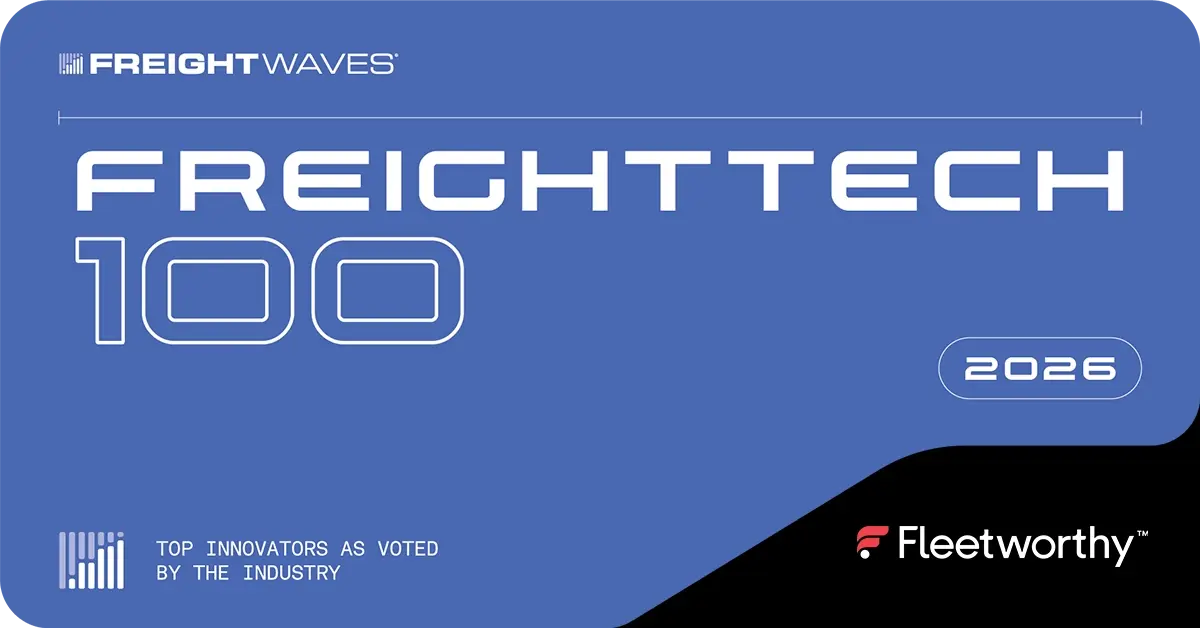Fleet operators increasingly find themselves overwhelmed by the patchwork of regulations that vary not just by state but also by the type of cargo and vehicle.
It is more important than ever to have a centralized compliance management system that can seamlessly adapt to these diverse regulations. Even the most complex regulations can be managed more simply if fleet operators have access to real-time updates and automated alerts to ensure compliance and reduce the risk of costly fines and operational disruptions.
Read on to learn ways fleet operators can enhance operational efficiency and protect the bottom line in the face of regulatory evolution.
Enhance Efficiency Through Integrated Technology
Operational efficiency is key to the sustained success and growth of all fleets, regardless of size or geographic location. A lot of inefficiencies that keep fleet managers up at night stem from using multiple disjointed systems for various fleet management functions. For example, using separate technology providers to track fuel usage, monitor vehicle maintenance schedules, and manage driver compliance can lead to fragmented data, manual errors, and delays in decision-making.
According to recent studies, fleets using unintegrated systems experience up to 20% higher operating costs due to the inefficiencies caused by manual data input, lack of real-time insights, and missed opportunities for predictive maintenance. In fact, downtime from preventable issues like vehicle breakdowns can cost fleets an estimated $448 to $760 per truck per day.
When you’re managing tolls, fuel, safety, and compliance through different partners, it’s not just a headache—it’s a recipe for errors and inefficiencies. To combat this, fleet operators should seek out a technology partner with a suite of products that can manage each function and provide actionable insights through data analytics.
It’s critical for fleet managers to have the ability to make informed decisions that drive cost savings and improve overall performance.
Reduce the Risk of Non-Compliance
Non-compliance with regulations can result in significant financial penalties, but the consequences extend beyond monetary fines. Repeated violations can also damage a fleet’s reputation, affecting customer trust and long-term profitability.
Fleetworthy’s audit readiness service can mitigate these risks by ensuring all necessary documentation is always up-to-date and easily accessible. Regular internal audits and leveraging technology are critical to staying ahead of regulatory changes.
Implement Cost Management Strategies
The hidden costs associated with compliance can erode profit margins if not managed effectively. Compliance costs are not just about fines. They include the resources spent on managing compliance—resources that could be better utilized elsewhere.
To avoid these pitfalls, fleet operators need the ability to track and optimize a wide range of expenses, from toll management to fuel taxes. By consolidating these costs into a single platform, fleet operators can gain better visibility and control, leading to significant savings.
Prepare for Regulatory Changes
As the regulatory landscape continues to evolve, staying agile is crucial. Upcoming regulatory changes could impact fleet operations. Fleet operators need to stay informed and proactive to adapt quickly to new regulations.
At Fleetworthy, our technology is designed to not only keep up with regulatory changes, but to anticipate them. We’re constantly updating our system to ensure our clients are not just compliant but ahead of the curve.
By leveraging fleet management tools, fleet operators can streamline compliance processes, enhance efficiency, reduce costs, and proactively respond to regulatory changes.
FAQ
What are the key benefits of using a fleet management technology suite?
A fleet management technology suite can create efficiency in a wide range of fleet functions—such as toll management, fuel tracking, safety protocols, and compliance. This centralization eliminates the need for multiple, disjointed systems, reducing the likelihood of errors and operational inefficiencies. Good fleet management technology provides real-time data and actionable insights that enable fleet managers to make informed decisions, improve fuel efficiency, reduce downtime, and ultimately drive significant cost savings. On average, fleet operators using a suite of proven solutions report up to a 15% improvement in operational efficiency and a 20% reduction in compliance-related fines.
How does real-time compliance monitoring reduce the risk of non-compliance?
Real-time compliance monitoring ensures fleet operators stay updated with the latest regulations, including DOT and FMCSA requirements. Automated alerts notify operators of approaching deadlines for vehicle inspections, license renewals, and reporting requirements. By proactively addressing these issues, fleets can avoid non-compliance fines, which average $8,000 per violation. In addition, staying compliant helps protect the company’s reputation, reducing the risk of losing business due to poor compliance records. Fleet operators that implement real-time monitoring systems report up to a 25% reduction in compliance violations.
How can fleet management platforms help reduce compliance costs?
Fleet management platforms help reduce compliance costs by automating documentation, reporting, and audits. They provide a centralized repository for all necessary paperwork, eliminating manual processes that are time-consuming and error-prone. In terms of financial impact, the ability to automate compliance tracking and reporting can save fleet operators between $5,000 and $10,000 annually, depending on the size of the fleet. Additionally, streamlined compliance processes reduce the administrative workload, allowing resources to be reallocated toward core business activities.
What are the consequences of non-compliance with DOT & FMCSA regulations?
Non-compliance with DOT and FMCSA regulations can result in significant financial penalties, operational delays, and damage to a company’s reputation. The average fine for DOT non-compliance is $7,500, but some violations—such as falsified records or unsafe operations—can result in penalties exceeding $20,000. Beyond fines, non-compliance can also lead to a fleet being placed out of service, causing disruptions in operations and potentially leading to lost contracts. Long-term non-compliance can impact a carrier’s safety rating, reducing the likelihood of being awarded future business.




